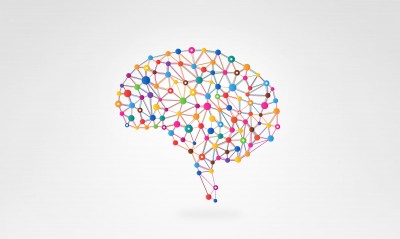Numerous studies have uncovered the physical power of music. Aided by modern-medical equipment, they are revealing the power of music on our brains, including areas responsible for movement, language, attention, memory, and emotion.
Here are 7 surprising benefits classical music has on our mood, our brains, and our bodies.
The Power of Mozart To Decrease Blood Pressure
Classical music has been shown by multiple studies to lower blood pressure. According to a 2015 study by Oxford University, the music of Beethoven, Puccini, and especially Verdi had a calming effect on the listeners.
Later research has found that classical music from Mozart and Strauss notably lowered the blood pressure of participants, with Mozart’s music having the most potent effect. They found that music with no lyrics, few changes in volume or rhythm, and harmonies that are “not rousing”’ were the best for lowering blood pressure.
The Mozart Effect On Memory
Researchers have found that music helps patients with dementia. A study from the Beth Israel Deaconess Medical Center determined that singing lyrics can benefit the speech and memory of people who are recovering from a stroke or brain injury, where they suffered damage to the left-brain region responsible for speech.
Then there is the Mozart Effect. Researchers found that after participants listened to Mozart, they had an increase in brain wave activity linked to memory, cognition, and problem-solving.
Classical Music for Relieving Pain
Multiple studies have shown that listening to classical music can help relieve pain. Most notably, patients listening to music used significantly less pain medication. On average, music helped patients experience two notches less on the 10-point pain scale. That's the same relief typically reported with a dose of painkilling medicine. They concluded that “music could be offered as a way to help patients reduce pain and anxiety during the postoperative period.”
Music therapy has been shown to have positive power in Emergency Departments as well, lowering the severity of perceived pain and reducing levels of anxiety.
The Feel Good Power of Music
Imagine a workout without music. Brian Harris of Harvard Medical School’s Spaulding Rehabilitation Hospital, says it’s impossible. He explains that listening to music triggers the release of dopamine, the feel-good hormone.
Researchers from the University of San Diego found that it is classical music that can have the most significant mood-altering impact. They compared changes in blood pressure among individuals listening to classical, jazz, and pop. Those listening to classical music had significantly lower systolic blood pressure compared to other genres.
Reduces Stress Levels
Operating room studies have shown that the power of music to reduce stress levels. A New York study found lower blood pressure for patients who listened to music during cataract surgery. Similarly, earlier research concluded that surgeons performing an operation with self-selected music playing in the operating room showed fewer signs of stress.
An Italian study found that the tempo of music is essential for creating a relaxing effect. Slow or meditative music produced a relaxing effect greater than other styles of music.
Classical Music For Focus and Study
The reality is that listening to classical music while you study will not magically make you smarter, but it can set you up for success and help you focus. Research in France had students listen to a one-hour lecture where classical music was played in the background. They scored significantly higher on a test related to the content of the lecture compared to a group of academically equal students who heard the same lecture without classical music.
Relaxing Classical Music for a Better Sleep
Relaxing classical music is an effective intervention in reducing sleeping problems. In a study of young people with sleep issues, researchers found that listening to classical music for just 45 minutes prior to bed can help improve sleep quality.
It helps children sleep too. Health organizations, like the NHS, recommend relaxing music as a part of a nighttime routine for kids. Softly played classical music can act as a trigger, letting children know that it's time for bed.
Listen To Relaxing Classical Music On Calm Radio
We have a channel to harness all of classical music’s superpowers. Lower your blood pressure with some Strauss. Feel the Mozart Effect on your memory. Play some relaxing classical piano music and feel any pain melt away.
Get the dopamine flowing with some feel-good classical music. Play a little peaceful Bach during your next study session. Or, when you need a good night’s sleep, we have the deep undulating vibrato of the cello to help.
Experience all of our relaxing classical music by signing up for a free or premium membership from Calm Radio.
Happy listening!
~
Listen to 1000+ channels of calming music and classical music on Calm Radio. Join Calm Radio and listen on 20 platforms and mobile apps with hundreds of peaceful classical music channels, meditation music playlists, sleep music and audiobooks. Explore inspiring articles on faith and listen to devotional Christian music here.




